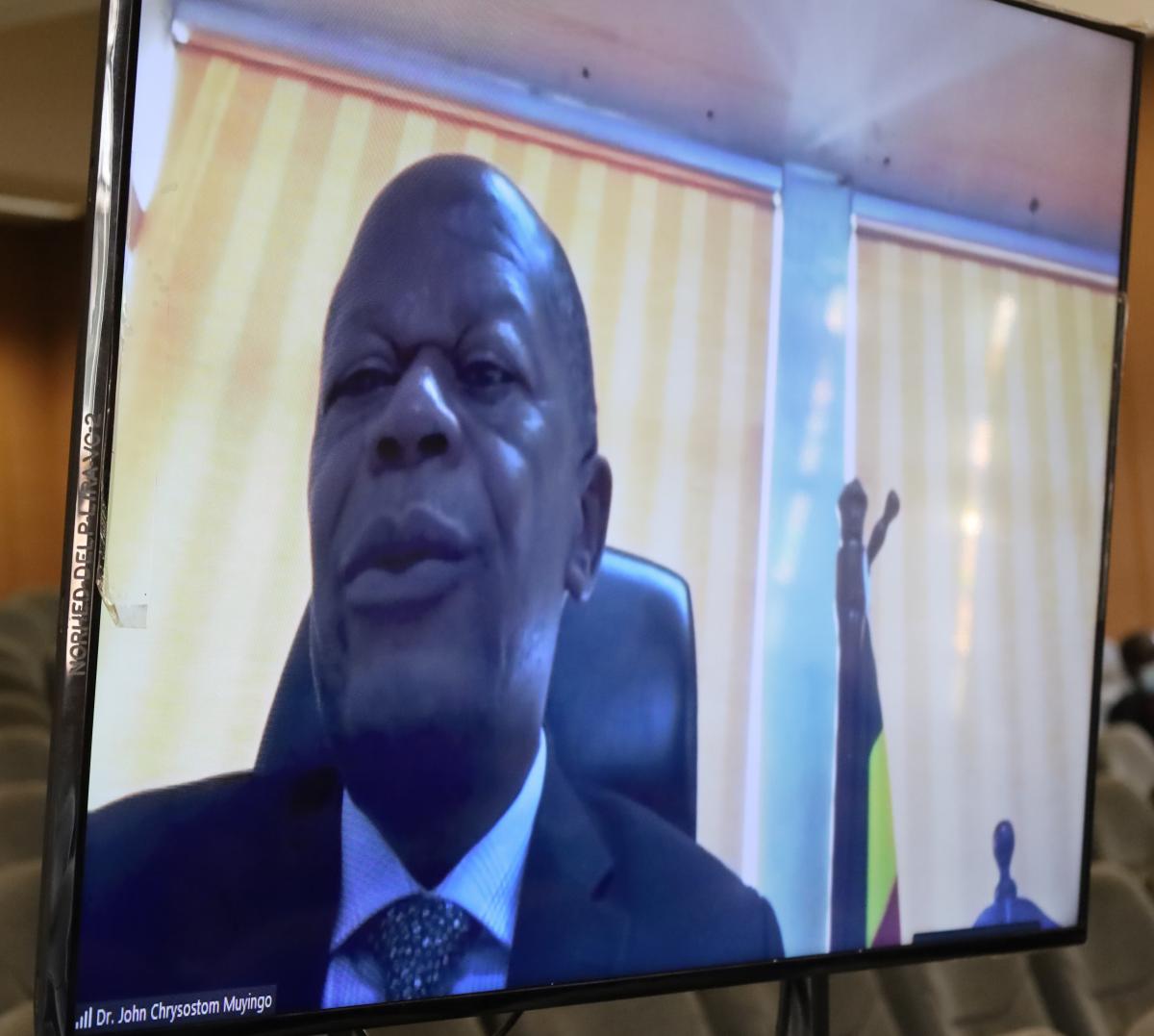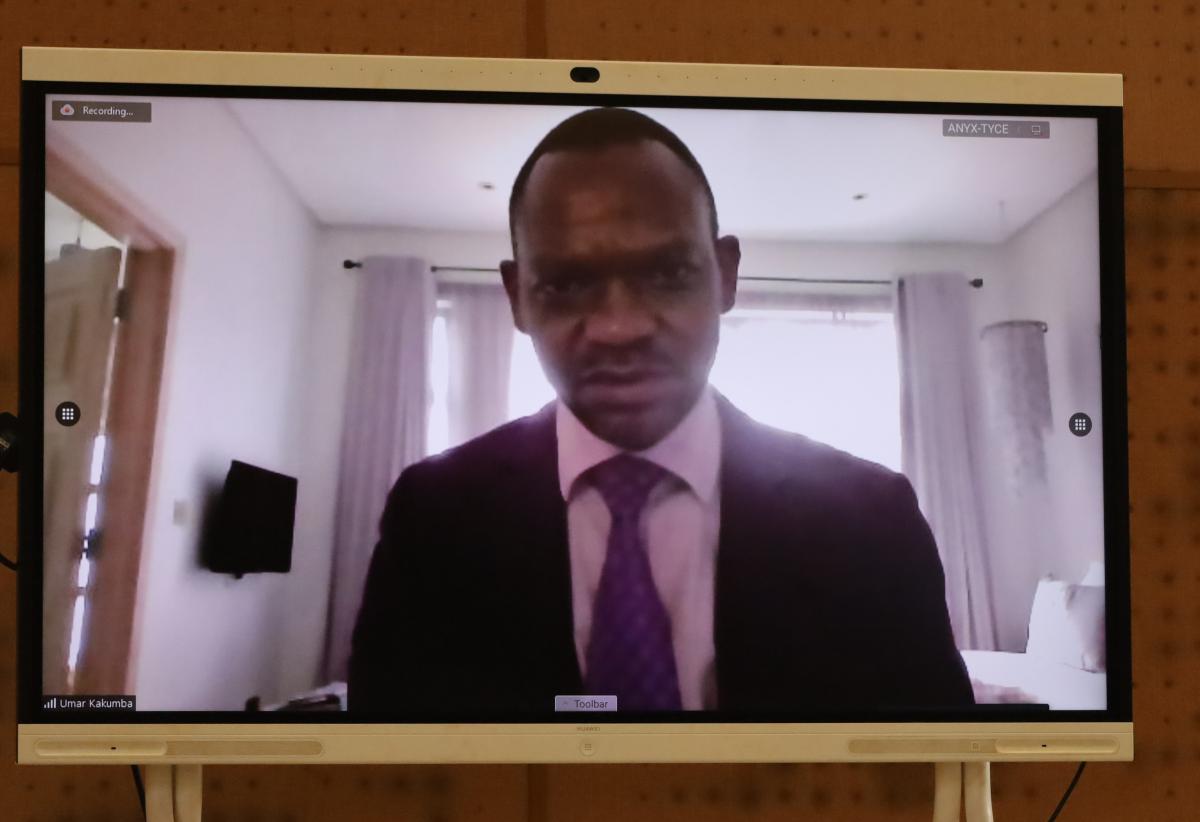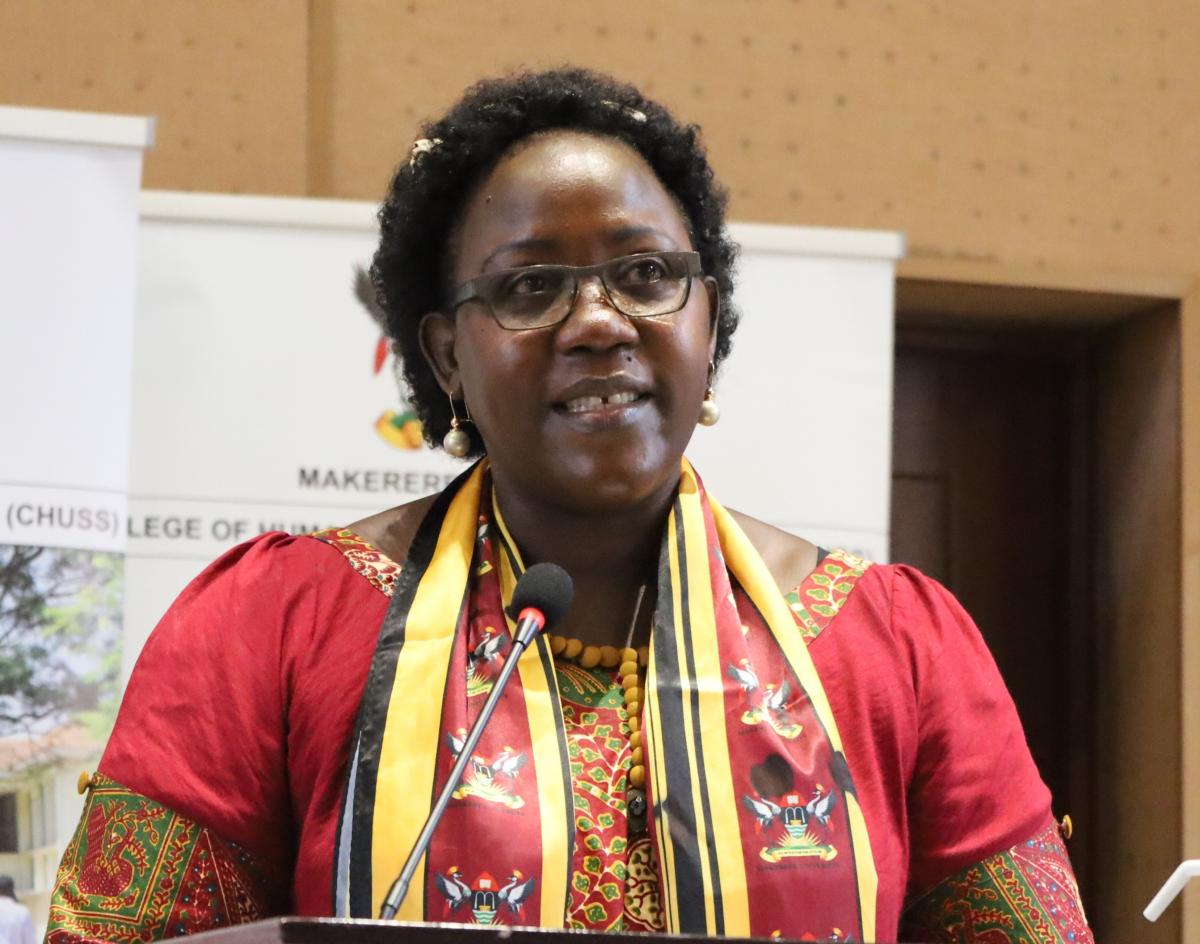
Makerere university College of Humanities and Social Sciences (CHUSS) on 18th November 2021, launched a project on, “Archiving, Memory and Method from the Global South”, aimed at building the capacity of staff and students to study formal and non-formal archival repository institutions and community archiving.
The three year project ( 2021-2024) is being spearheaded by Prof. Josephine Ahikire (also the Principal CHUSS) and is funded by the Andrew W. Mellon Foundation of New York at an estimated budget of US$ 800,000. Other members on the writing team include Dr. Julius Kikooma (also Deputy Principal CHUSS) Dr. Edgar Taylor, Dr. Pamela Khanakwa, Dr. Edgar Nabutanyi and Dr. Levis Mugumya.
The Project was officially launched on Thursday, November 18, 2021, by the Minister of State for Higher Education, Hon. Dr. John Chrysestom Muyingo and also graced by the Vice Chancellor Makerere University represented by his Deputy in Charge of Academic Affairs (DVC (AA) Assoc. Prof. Umar Kakumba.
Hon. Minister Muyingo congratulated the Principal Investigator and the entire writing team upon the grant award and contributing to the efforts to preserve the knowledge and records that reside in communities and institutions through the lens of archival research.

Minister Muyingo reported that Government of Uganda with support from the World Bank constructed the National Records Centre and Archives (NRCA) Phase I under the Ministry of Public Service in 2015.
In addition to decongesting the Registries and Records Centres and preservation of archival holdings of Uganda for posterity, the minister said, NRCA also facilitates research nationally, regionally and internationally.
“In recognition of the important role that archives play in supporting research, the Government opened up this facility to researchers; both foreign and national, as well as students, provided that they first receive clearance from the Uganda National Council for Science and Technology (UNCST).
Government remains committed to ensuring that this facility provides efficient and effective service to the public and as such, is seeking funds to install an archival management system, as well as construct Phase II of the NRCA building. This will not only increase the NRCA’s capacity to better serve the public but also attract more partnerships that will broaden efforts to archive more records that still exist within our communities”, Hon. Dr. Muyingo said.
The Minister commended the CHUSS for taking keen interest in contributing to the preservation of precious records for future generations and shaping future trends in archival research in partnership with communities and other institutions.
He noted that COVID-19 pandemic and the disruptions that came along with it have particularly affected the education sector adding that the magnitude of these disruptions may not be easily quantifiable now, but that research can provide useful tips on how the country can ably recover.
Hon. Muyingo expressed Government’s and the Ministry’s preparedness to learn from the scientific evidence generated by research and innovations to guide the sector’s recovery from the effects of COVID-19.
“I wish to reiterate my Minister’s position by saying that the Government is ready and willing to use the high-quality evidence provided by all categories of research to inform its policy decisions. I therefore look forward to receiving reports about the progress of this project so that together, we can contribute to the social and economic transformation of our beloved country”, the minister pledged.

The Vice Chancellor in his speech read for him by his Deputy in charge of Academic Affairs (DVCAA) Assoc. Prof. Umar Kakumba said the launch of the project comes at a time when Makerere University is celebrating the 100years of her existence and service to society which resonates very well with the Makerere University strategic agenda (2020-2030) geared towards becoming a research led university and therefore forms part of our centenary celebrations.
“I am particularly pleased to learn that this project will not only focus on the formal aspects of archiving our history but will also examine community archives and intangible archives such as folklore, dance, music and other oral forms. It was through these oral forms that our rich cultural history was in the 20th and preceding centuries disseminated, preserved and handed down to the next generation”, the DVCAA said.
Dr. Kakumba hailed the project team for securing this project as an extremely commendable effort on the part of the College extending gratitude to the Andrew W. Mellon Foundation for considering the proposal by researchers worth funding and thereby allocating resources to help run the project.
“Anyone who grew up in the rural setting before modernity set in will tell you that oral folklore ruled the evening fireside chats and that the best orators were much sought after. These orators were not only a source of education and entertainment but were revered for the wisdom they offered during settlement of disputes. To put it in another way, they were a respected source of power. They not only had history at their fingertips but also possessed the knack to deliver this advice in a way that was pacifying”, The DVCAA said.
He described as gratifying to note that this project seeks to restore that revered place that archivists and archives not only as sources but as sites of power, struggle and memory. With technology now at disposal, the DVCAA advised that it would be wonderful to see these sites of power, struggle and memory digitised, so as to enhance sharing and accessibility.
Dr. Kakumba thanked the Government of Uganda for recognising and allocating funding to research and innovations at Makerere University aimed at supporting national development priorities. Part of this funding he said, was allocated to enhancing institutional archival efforts through initiatives such as the Digitalizing of Academic Records and Processes (DARP) project.
The goal of this project he added was to improve the status of both undergraduate and graduate academic records by preserving them, converting them into digital form, and ultimately automating academic processes for e-service delivery.
The DVCAA was hopeful that the project will enable staff and students to conduct research with endangered archives, to collaborate with communities and archival institutions, and to shape future trends in archival research in Uganda, and ultimately lead to improvement of service delivery, especially in the area of research.

The Principal Investigator, Prof. Ahikire said the project seeks to centre debates in archiving, memory and method in Humanities and Humanistic Social Sciences research at Makerere University.
She said the project is a capacity building initiative that will fund research by Makerere University scholars (both faculty and students) to study formal and non-formal archival repository institutions as well as community archiving.
The PI also explained that the research outputs are expected to enhance the teaching and learning in the humanities through revision of curricula, pedagogy and methodology in archival studies and research.
“The project centres the humanities and Humanistic social Sciences at Makerere in contributing to the shaping of global debates relating to archiving and memory. The grant will build capacity for archival research, not only with formal archival repositories such as the Uganda National Archives but also with community archives and intangible archives in the form of oral histories, folkore, dance and music among others”, The PI explained.
Prof, Ahikire also reported that the project will also enable Makerere scholars to study the role of archives in public life and to engage with communities and archivists in matters concerning the ethics and methods of archival preservation.
In addition, the PI said, this work will contribute to the preservation of archives for the future generations and generate dialogues over the decolonialisation of knowledge in the global south, also leading to curriculum and pedagogical development within the humanities at Makerere.
The project according to Professor Ahikire, will support research under three fields namely:- Archives and Communities; memory, representation and time; Archives and institutions: power justice and labour; Archives and Academia; Knowledge from the Global South.
“By approaching archives not only as sources but as sites of power, struggle and memory, the project brings the skills of Humanities’ scholars to bear on issues of historical memory, the preservation, particularly from the African perspective. In addition to building research capacity within the university, the project will also contribute to preserving repositories of records and knowledge for future generations of scholars and the wider publics across the country”, Prof. Ahikire stated.,
